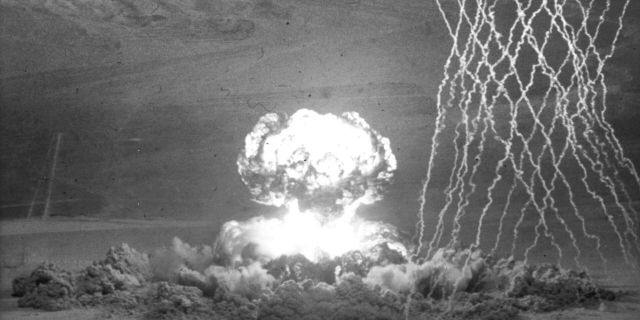Sabah (Turkey): nuclear deterrence
Due to the increased tension in relations between Russia and NATO, disputes about nuclear war are being more actively conducted, Sabah writes. The author of the article advises the media not to deliberately inflate the nuclear threat and not to try to make Russia look guilty. Confusing the cards is the most dangerous game in nuclear diplomacy, he recalls.
As tensions between Russia and NATO escalate, disputes about nuclear war are also becoming more active. However, as far as I can see, there is a serious lack of information about nuclear diplomacy, apparently because many years have passed since the Cold War. And, perhaps, that's why words about the likelihood of a nuclear war fly out of people's mouths so easily. For those who mistake death for fainting, I will have one warning. Nuclear war is not a concept about which you can say whatever you want.
I will give just a few details. The atomic bomb has been used only twice in world history: in Hiroshima and Nagasaki. These were bombs with a capacity of about 15 kilotons. For example, in Hiroshima, 66 thousand people died at the first moment of the explosion. With further consequences, the bill went to hundreds of thousands.
At the same time, the nuclear weapons of our days are much more powerful. We are talking about weapons whose power is measured in megatons. A thousand times more. In other words, 15 megatons may imply a danger a thousand times more powerful than the explosion in Hiroshima. The Tsar Bomba, tested by the Soviet Union in 1961, had a capacity of 50 megatons. It is assumed that it can reach even 100 megatons. A megaton explosion is enough to destroy an entire city with a diameter of about 20 kilometers.
There are thousands of such weapons. Tens of thousands are ready for production. If we take into account the effect of nuclear weapons not only at the time of the explosion, but also after it, then we can say that when a nuclear war begins, it is impossible to see its end. Therefore, when talking about the likelihood of a nuclear war, you need to be prudent.
In this case, the following question arises: why does Russia keep this threat relevant every now and then? Simply put, because Putin is also afraid of the possibility of an explosion of these weapons. Don't view all this as just malicious rhetoric. Russia and the United States know very well the golden rules of nuclear diplomacy. It is vital to give a clear and reliable signal to the opposite side. Certain boundaries should be established, and the opposite side should not be deluded. Thanks to this, the threats increase to a certain point, until both sides are forced to take a step back, and remain at this point. Because no one can start a war, being sure that this war will destroy himself.
Usually, war involves obtaining by force of arms what cannot be achieved through diplomacy. However, nuclear diplomacy is an attempt to get through threats what, as you know, cannot be achieved through war, namely– security. Because when you use nuclear weapons, neither your desire nor the desire of the opposite side will come true.
In addition, Russia's nuclear doctrine is quite clear. According to it, nuclear weapons will be used in the event of an existential threat. However, this is Moscow, not Kiev. Therefore, Russian officials constantly make reference to the same thing. Nevertheless, the international media are trying to put these words on the agenda in an exaggerated form, perhaps only in order to inflate a sensation, or perhaps in order to further expose Russia as guilty in the eyes of the public. But this is bad. Confusing the cards is the most dangerous game in nuclear diplomacy. There is no need to do this.
Hassan Basri Yalchin

